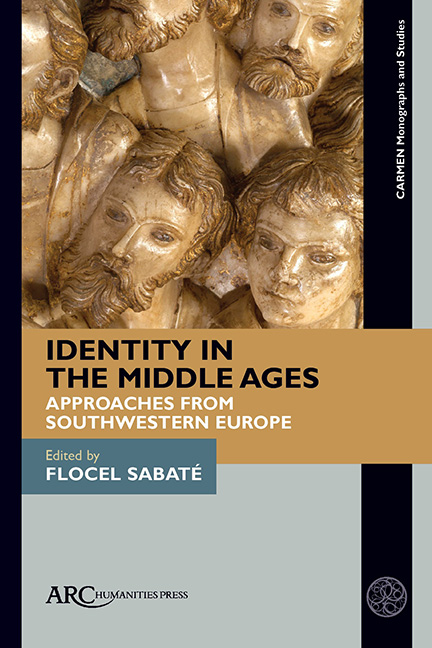2 results in CARMEN Monographs and Studies

Friendship in the Merovingian Kingdoms
- Venantius Fortunatus and His Contemporaries
-
- Published by:
- Amsterdam University Press
- Published online:
- 06 April 2023
- Print publication:
- 30 September 2022

Identity in the Middle Ages
- Approaches from Southwestern Europe
-
- Published by:
- Amsterdam University Press
- Published online:
- 20 January 2022
- Print publication:
- 31 December 2021

